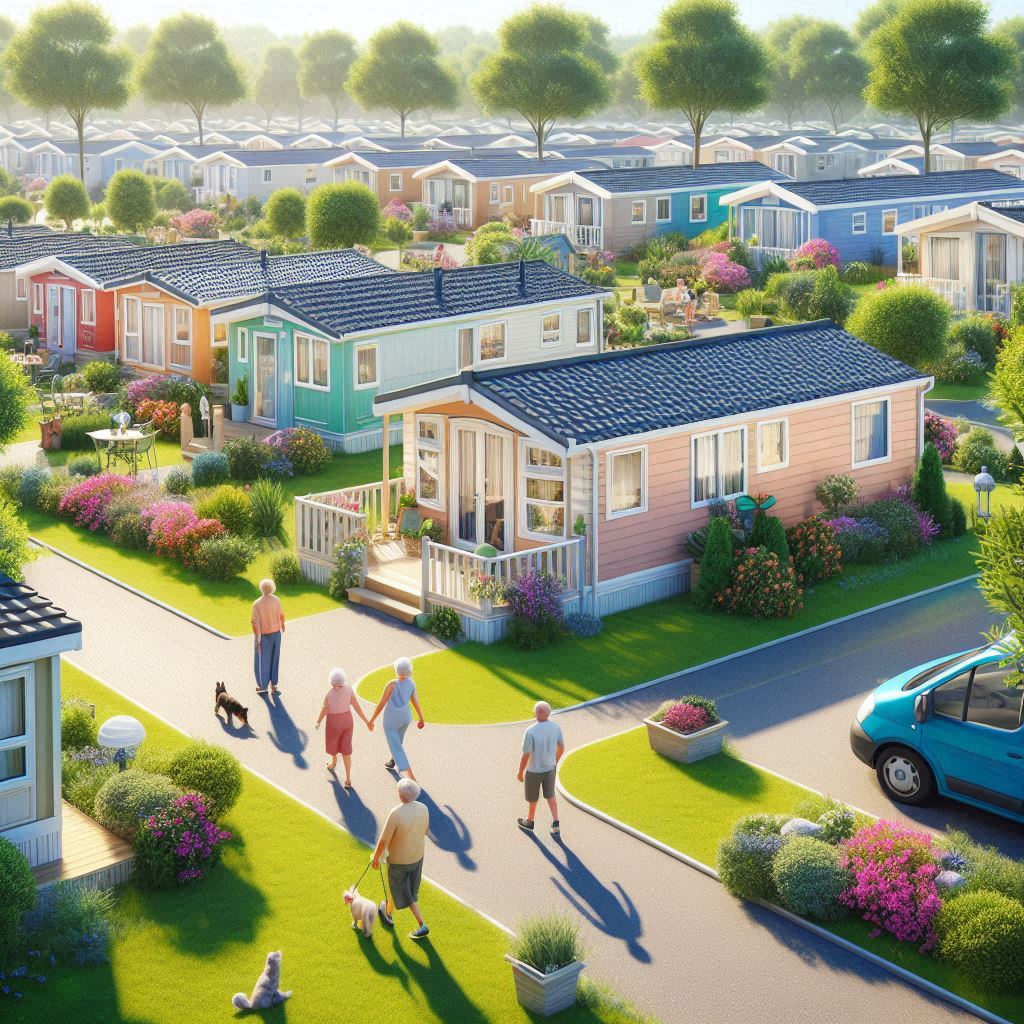
Mobile Homes vs. Other Housing Options
As the senior population grows, many are exploring alternative living arrangements that offer flexibility, affordability, and a sense of community. One such option is living in a mobile home within a park or campground. This lifestyle can provide numerous benefits, but it also comes with unique challenges. In this post, I’ll delve into the ins and outs of mobile home living, including cost comparisons, amenities, independence, maintenance issues, and the pros and cons.
Cost Comparison:
Mobile Homes: Generally, mobile homes are more affordable than traditional homes. The average cost of a new single-wide mobile home is around $50,000, while a double-wide can cost approximately $100,000. Pre-owned mobile homes can be even more affordable, often ranging from $10,000 to $30,000.
Traditional Homes: The median price for a single-family home in the U.S. is around $400,000. This price can vary significantly depending on location and size.
Apartments/Condos: Renting a one-bedroom apartment typically costs between $1,500 and $3,000 per month, depending on the city. Buying a condo can cost anywhere from $250,000 to $500,000 or more.
Monthly Expenses:
Mobile Home Parks: Residents pay a lot rent, which covers the land lease and often includes amenities like water, sewer, and trash services. Lot rent can range from $200 to $1,200 per month.
Traditional Homes: Homeowners must cover mortgage payments, property taxes, utilities, and maintenance costs.
Apartments/Condos: Renters pay monthly rent, and utilities, and may also face HOA fees in condos.
Amenities in Mobile Home Parks
Community Centers: Many parks have community centers where residents can engage in social activities, attend events, or participate in fitness classes.
Swimming Pools: A common feature, providing a place for relaxation and exercise.
Walking Trails: Parks often have scenic walking paths for leisurely strolls.
Recreational Facilities: Tennis courts, shuffleboard, and game rooms are frequently available.
On-Site Management: Ensures the park is well-maintained and addresses residents’ concerns promptly.
Pet-Friendly Areas: Designated areas for pet walking and socializing.
Independence and Lifestyle
Living in a mobile home can significantly impact a senior’s independence:
Accessibility: Mobile homes can be customized with ramps, grab bars, and other modifications to accommodate mobility issues.
Community Engagement: The close-knit nature of mobile home parks fosters a strong sense of community. Neighbors often look out for each other, reducing feelings of isolation.
Flexibility: The lower cost of mobile homes allows for financial freedom. Seniors can travel, pursue hobbies, or invest in experiences rather than being tied down by high housing costs.
Privacy: Unlike apartments, mobile homes offer more privacy, with no shared walls and personal outdoor space.
Maintenance Considerations
While mobile homes require less maintenance than traditional homes, there are still some upkeep tasks to consider:
Regular Inspections: Periodic checks of the roof, plumbing, and electrical systems are essential to prevent major issues.
Skirting Maintenance: The skirting around the base of the home should be inspected for damage or gaps to prevent pests from entering.
HVAC System: Regular servicing of heating and cooling systems ensures efficient operation and comfort.
Landscaping: Depending on the park, residents may need to maintain their small yard or garden area.
Repairs: Minor repairs, such as fixing leaks or patching up walls, are part of mobile home ownership.
Pros and Cons of Mobile Home Living
Pros:
Affordability: Lower purchase and monthly costs make mobile homes an attractive option for seniors on a fixed income.
Community: Mobile home parks often have a strong sense of community, with numerous opportunities for social interaction.
Flexibility: Financial savings from lower housing costs provide more freedom to travel or invest in personal interests.
Low Maintenance: Generally, mobile homes require less maintenance than traditional homes.
Accessibility: Homes can be customized to meet specific mobility needs.
Cons:
Depreciation: Mobile homes can depreciate in value over time, unlike traditional homes which typically appreciate.
Lot Rent: Continual lot rent payments can add up, potentially offsetting some of the affordability benefits.
Space Limitations: Mobile homes are smaller than traditional houses, which may require downsizing belongings.
Park Rules: Residents must adhere to park regulations, which can sometimes be restrictive.
Natural Disasters: Mobile homes can be more vulnerable to severe weather conditions like hurricanes or tornadoes.
Park Sales: This is one that can be somewhat of a disaster. If the owner of your park sells the park to someone else, let’s say a developer who wants to use the land for something else, you will be given a date to vacate the premises. remember, you own the home, not the land. Even though mobile homes are technically mobile, most are decades old and have not moved since being set up. Moving your home to another locations can be extremely costly and that’s if the home is even in any condition to move. At this point you have 2 choices. The first is take a “buyout” if one is offered (most offers are way undervalued) and the second is just walk away from the home which is a total loss.
Final Thoughts
Living in a mobile home within a mobile home park or campground can be a viable and attractive option for seniors seeking affordability, community, and independence. While there are some challenges to consider, the benefits often outweigh the drawbacks, making it a lifestyle worth exploring. With careful planning and consideration, seniors can find a mobile home living arrangement that suits their needs and enhances their quality of life.
Updated
When this post was written my wife and I were living in our RV and rented a permanent/ yearly RV lot. It was great at the time and we never thought we would ever leave. Things change.
We no longer live in the RV in the RV/Mobile home park. Although we loved it, the park we were at started raising prices at a ridiculous rate and wanted us to sign an agreement that was not in our best interest. After many long talks and sleepless night, my wife and I decided we would sell the RV and rent an apartment. It’s something we never thought we would do. We thought about buying something, but neither one of us want to do maintenance and upkeep at this point in our lives.
So far we like apartment life more then we thought we would. We love when something needs to be fixed we just jump on the portal and submit a maintenance ticket!!!
Did you enjoy this post? Do you want to know when the next post comes out? Consider subscribing. I only send update emails once a week, usually on Friday. Try it out. You can unsubscribe at any time.
